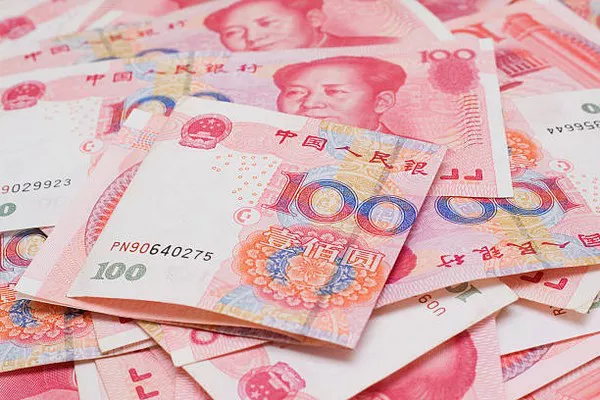In the realm of international finance, the strength or weakness of a nation’s currency plays a significant role in shaping its economic landscape. While a strong currency often garners praise for its stability and purchasing power, a weaker currency can offer a range of benefits that contribute to a country’s economic growth and competitiveness. Understanding these advantages is crucial for policymakers, businesses, and investors alike. This article delves into the major benefits of a weak currency and its implications for various stakeholders.
Export Competitiveness:
One of the most notable advantages of a weak currency lies in its ability to enhance a country’s export competitiveness. When a nation’s currency depreciates relative to others, its goods and services become more affordable for foreign buyers. This price advantage can stimulate demand for exports, leading to increased sales volumes and higher revenues for exporting firms. Moreover, a weaker currency can help exporters maintain or expand their market share in the face of competition from countries with stronger currencies.
For example, suppose a country’s currency depreciates by 10% against its trading partners’ currencies. In this scenario, its exports become 10% cheaper for foreign buyers, making them more attractive compared to goods from countries with relatively stronger currencies. This competitive edge can boost export-oriented industries such as manufacturing, agriculture, and tourism, driving economic growth and job creation.
Balancing Trade Deficits:
A weak currency can also play a crucial role in addressing trade imbalances by reducing trade deficits. When a nation imports more goods and services than it exports, it typically experiences a trade deficit, which can put downward pressure on its currency. In response, a depreciation of the currency can make imports more expensive while making exports more competitive, thereby narrowing the trade gap over time.
By promoting a shift towards domestically produced goods and reducing reliance on imports, a weaker currency can help rebalance trade flows and improve a country’s external accounts. This, in turn, enhances economic stability and reduces vulnerability to external shocks by making the economy less dependent on foreign goods and capital inflows.
Boosting Tourism and Hospitality:
In addition to benefiting export-oriented industries, a weak currency can stimulate inbound tourism and hospitality sectors. When a country’s currency depreciates, traveling to that destination becomes more affordable for foreign tourists, as their purchasing power increases relative to the local currency. As a result, tourism-related businesses, including hotels, restaurants, and tour operators, can experience a surge in demand from international visitors.
Moreover, a weaker currency can incentivize domestic tourism by making overseas travel relatively more expensive for residents. This can further support the growth of the domestic tourism industry, contributing to job creation and economic development in various regions. Overall, a depreciated currency can act as a catalyst for the tourism sector, driving revenue generation and promoting cultural exchange.
Stimulating Foreign Direct Investment (FDI):
A weak currency can make a country’s assets, including real estate, infrastructure, and businesses, more attractive to foreign investors. When a currency depreciates, foreign investors can acquire assets at a lower cost in terms of their own currency, potentially leading to increased FDI inflows. This influx of foreign capital can support economic development, create employment opportunities, and facilitate technology transfer and knowledge spillovers.
Furthermore, a weaker currency can improve the competitiveness of domestic industries, making them more appealing targets for foreign investment. Multinational corporations may find it more cost-effective to establish or expand operations in a country with a depreciated currency, leveraging lower production costs and accessing new markets. As a result, a weak currency can help attract FDI, which can contribute to long-term economic growth and industrial diversification.
Debt Repayment and Fiscal Adjustment:
For countries with significant foreign currency-denominated debt obligations, a weak domestic currency can alleviate the burden of debt repayment. When a currency depreciates, the real value of foreign debt decreases in terms of the local currency, reducing the debt service costs for governments and businesses. This can provide relief to indebted entities, allowing them to allocate resources towards productive investments and economic stimulus measures.
Moreover, a weaker currency can support fiscal adjustment efforts by improving the competitiveness of domestic industries and boosting government revenues from exports. Governments may also use exchange rate policy as a tool to manage their debt levels and enhance fiscal sustainability. By leveraging the benefits of a weak currency, policymakers can pursue prudent fiscal policies aimed at promoting economic stability and growth.
In conclusion
while a weak currency may be viewed as a sign of economic vulnerability in some contexts, it can offer significant advantages for countries seeking to enhance their competitiveness and stimulate economic growth. From promoting export-led development to attracting foreign investment and boosting tourism, a depreciated currency can serve as a catalyst for various sectors of the economy. However, it is essential to recognize that currency depreciation also poses risks, including inflationary pressures and capital flight, which require careful management by policymakers. Overall, a nuanced understanding of the benefits and challenges associated with a weak currency is crucial for formulating effective economic policies and harnessing its potential for sustainable development.


